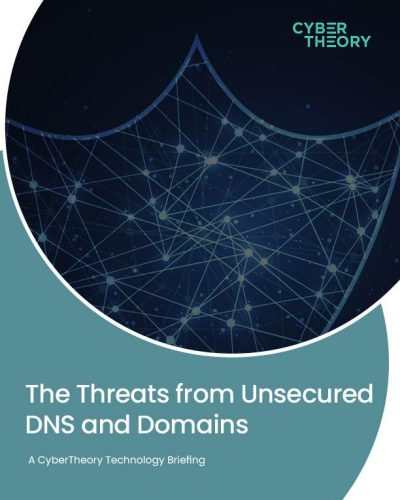A CyberTheory Technology Briefing
95% of cyberattacks, malware and bots rely on unsecured DNS to be successful.
Domains are a critically important element of internet infrastructure; they are also woefully exposed and exploitable. Their functionality and security rely upon many factors. Name server delegations introduce complex and subtle interdependencies between domains and their authoritative name servers.
Every modern organization requires the Domain Name System (DNS) to run its business, regardless of industry, location, size or products. DNS is a protocol that translates user-friendly domain names, such as cybertheory.io, into machine-usable IP addresses like 199.123.45.678. Without DNS, we’d have to memorize random strings of numbers, which we can’t do. This is why the most popular password remains 123456.
DNS is fundamental to every single modern organization all over the world. Network operators cannot block DNS traffic, and firewalls have to let it through. Networks need DNS to function properly.
Name server delegations introduce complex and subtle interdependencies between domains and their authoritative name services. A compromise of any name server in the delegation hierarchy can lead to a hijacking scenario.
Download the full report to learn more about this often overlooked hygiene requirement, the risks associated and some of CyberTheory’s suggestions for alternative solutions available to organizations who need help addressing the issues.

